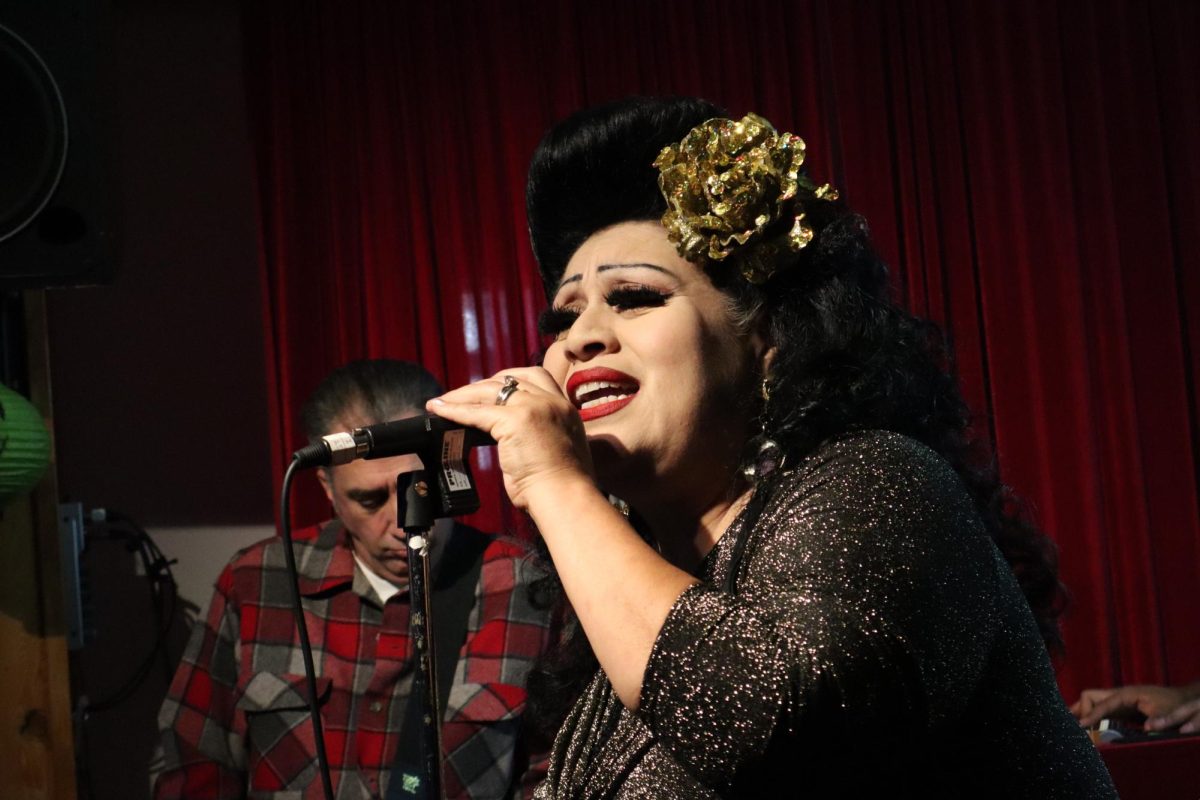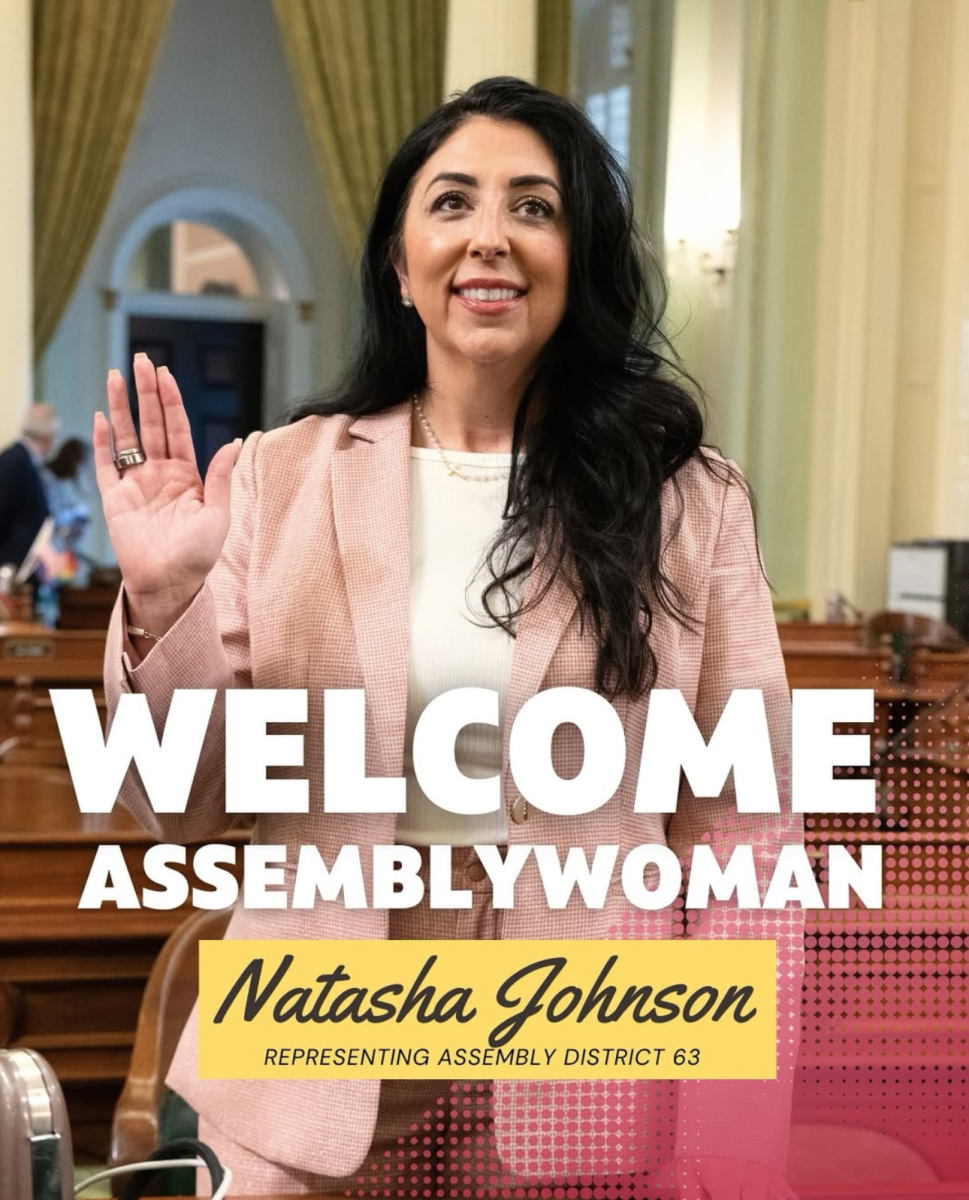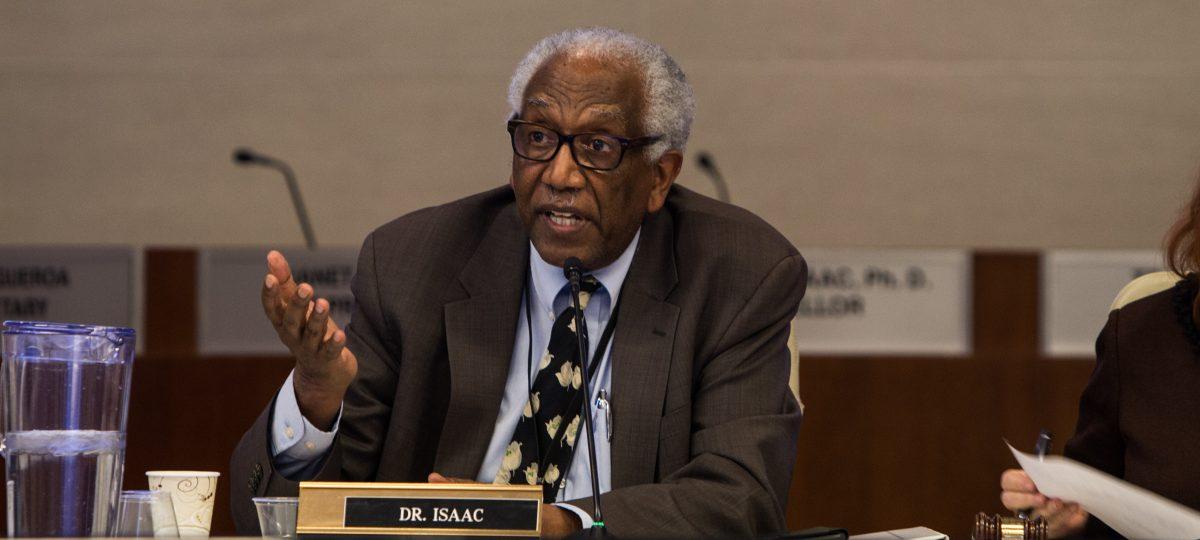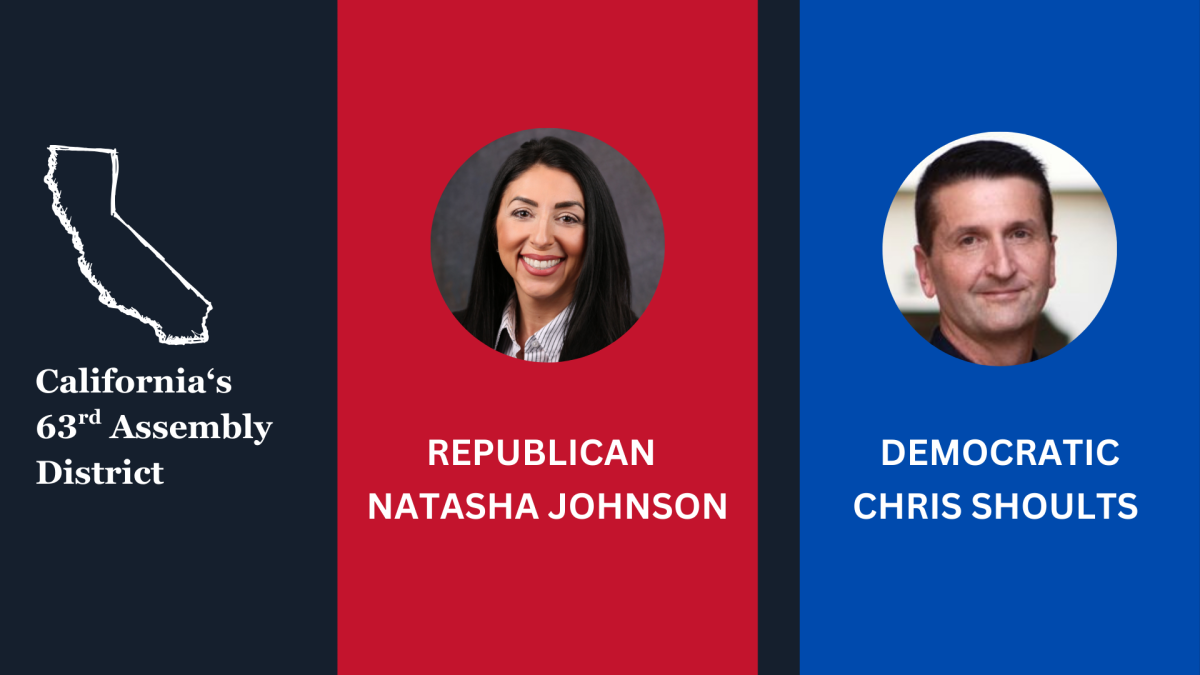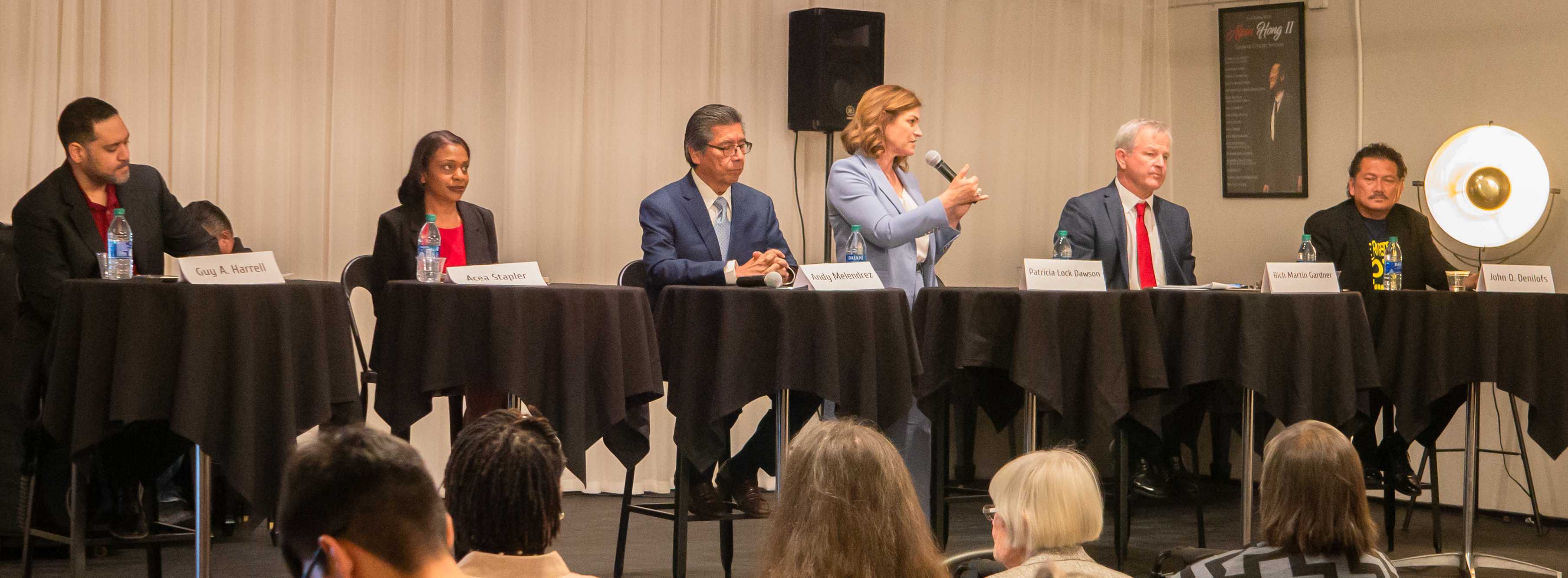
By Erik Galicia
Riverside’s six mayoral hopefuls talked homelessness, marijuana and bankruptcy on Feb. 26 during their final public forum before Tuesday’s election.
“We need to address the people that don’t want help,” Acea Stapler, a county office assistant and retired U.S. Navy member, told potential voters at Avila’s Historic 1929. “That is where the major issue is coming in.”
Stapler proposed creating a state or federally-funded “safe camp” that would be treated like the Wounded Warriors Project, a charity that provides services to wounded veterans. Homeless people in the camp would be offered health services and help in getting back on their feet.
“If they don’t fulfill their obligations to see doctors, psychiatrists … then they’ll just kind of stay where they’re at,” Stapler said. “But at least we’re providing a safe environment. We won’t have to worry so much about the water being contaminated down in the river bottom. We won’t have to worry about the fires that keep happening that are affecting our homes.”
John Denilofs, the self-described “long shot” candidate, has proposed something similar for Martha McLean-Anza Narrows Park, which stretches from Jurupa Ave. to the Santa Ana Riverbottom in Riverside’s Grand neighborhood. His plan would designate a section of the park as an area where homeless people would be allowed to put up tents, after which homeless presence in neighborhood parks would be banned.
Denilofs said he would put porta potties out for the homeless to use in his first 90 days if elected mayor. He also proposed hard line police enforcement to deal with the issue.
“Most of our homeless guys on the street … they’re pedohiles,” Denilofs said. “They can’t get jobs. They’re stuck in limbo. As your mayor, I’m not gonna tolerate homeless people around businesses, around parks, around schools.”
Denilofs is no stranger to controversy. Last year, several news outlets reported on racist comments he has made in the past. Denilofs admitted to making the comments, but told the Press Enterprise he did not mean them.
Andy Melendrez, who is serving his fourth term as the Ward 2 city council member, argued that the discussion about affordable housing must involve talk about the city’s economy.
“One of the things that we have not done … is bring in the types of jobs that we need,” Melendrez said. “We really need to focus more on higher paying wages. In terms of affordable housing … you have to create the jobs that can afford those houses.”
The council member proposed playing into the area’s strong medical service sector by creating a hospital strategic plan designed to attract higher-paying jobs.
Patricia Lock Dawson, a Riverside Unified School District Board member who has drawn Mayor Rusty Bailey’s endorsement, emphasized that Riverside must secure its fair share of state funding for permanent supportive housing.
Dawson also proposed the development of a regional strategy with surrounding cities to address homelessness.
“I did that on the Santa Ana River,” Dawson said. “Working with 17 cities and three counties, environmental groups and water agencies … to bring $65 million into the region for projects.”
Guy A. Harrell, a taxi driver and former teacher, admitted that he is not an expert on homelessness and said he would tap into the guidance of Mayor Bailey and others who have more experience with the issue. Harrell expressed that his administration would be open to working with the other candidates who might be more experienced in local politics, such as Council Member Melendrez.
According to Rich Gardner, a retired grocery store worker who advocates for people with alzheimers, conversations with Riverside Police Chief Larry Gonzalez indicated that mental health and substance abuse issues plague over 85% of the homeless population.
“We do not have a program to get these individuals into right now,” Gardner said. “That’s where we have to start.”
Gardner was the only candidate to refrain from proposing a clear path when it came to legalizing the sale of recreational marijuana in Riverside, which most of the candidates called inevitable. According to Gardner, legitimizing the marijuana industry would bring more crime to Riverside.
In July of 2018, the Riverside City Council voted 4-3 to ban the sale of recreational marijuana. But the candidates warned against the possibility of a citizen-promoted cannabis initiative being ratified directly by voters in spite of the city council’s decision.
According to Dawson, such a case would exclude the city government from having a say in the ordinance. She proposed that the city council get ahead and regulate the industry.
Melendrez was one of the council members that voted against the ban. According to Melendrez, 55% of Riversiders approve of legitimizing dispensaries. He explained that the lack of control over the industry has produced “storefronts” that do more harm than good.
“Absolutely the worst,” he said. “They … had no business background. We didn’t know where they got their product. They were being robbed. They were being broken into at night. It’s difficult for the community to get over that kind of business.”
The council member proposed developing a vetting process that would select qualified, experienced and ethical businesses to run the marijuana industry in Riverside.
Stapler agreed that it is a matter of control and explained that a lot of good can come from the legitimate sale of cannabis.
“It’s easier for people who need it medically to go to a dispensary,” Stapler said. “We move forward with a lot of projects in this city where we leave things very vague. We can’t do that here.”
Harrell and Denilofs argued that legalizing marijuana sales would allow Riverside to profit from an issue that California voters have already settled.
“Simply put, it was voted into law,” Harrell said. “So allow it. The bottom line (is) it’s another type of business. We should be trying to profit off that.”
Last year, the city’s budget officials reported a possible “fiscal insolvency” by 2023 due to rising pension obligations. Dawson argued that her experience as an RUSD board member qualifies her to deal with the city’s coming debt. She proposed a budget stabilization committee that would identify what could be cut and what needs to be preserved.
“As a school district, we put aside money every year … into a special reserve fund … that we … are using to offset those pension obligations,” Dawson said. “Our budget at the school district is actually larger than the city’s. We have more employees than they do. Our budget is balanced and our pension obligation is secured.”
Gardner expressed skepticism toward Dawson’s comparison of RUSD and the city. According to the Press Enterprise, RUSD’s balancing of the budget last year included just one layoff but also 264 voluntary early retirements.
“We have to understand what smoke and mirrors are,” he said. “Yes, RUSD did balance their budget. I don’t think city hall is going to get 264 employees to take an early retirement. Riverside has 2,500 employees and 2,300 of them are full-time, which is obviously a different ball game.”
Gardner proposed refinancing half of the projected debt but warned that the city is facing a serious problem.
Melendrez assured the public that the city is already addressing the situation. According to Melendrez, the public employee pension reformat that is in the works will cap benefits and decrease pension obligations soon enough.
“We’re not gonna go bankrupt,” Melendrez said. “We have the highest revenue that we’ve had for many many years. And just like any other budget, we have to make the adjustments every year.”
The election will be held on March 3. If no candidate receives a majority of the vote, the top two vote-getters will advance to a run-off election in November.



